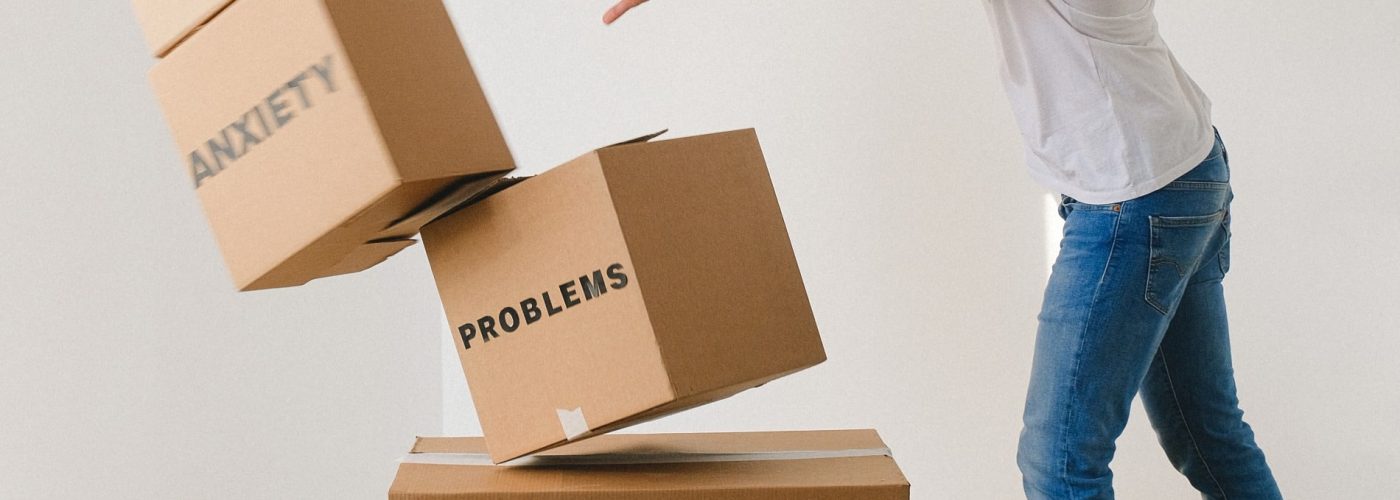The daily challenges of life can lead to increased stress levels for adults. In our ever-changing world, stress is nearly impossible to evade. A 2020 study by the American Psychological Association (APA) showed that two in three adults (67%) have endured heightened stress levels since the COVID-19 pandemic. Additionally, nearly eight in ten adults stated the pandemic is a significant source of stress in their lives.
Stress can have serious effects on an individual’s overall well-being. When enduring elevated stress regularly, it becomes more than just stress. If stress is left untreated, it can wreak havoc on a person’s physical and mental health. One very serious condition that chronic stress can lead to is depression.
Depression and Its Link to Stress
Chronic stress can gradually worsen a person’s mindset, causing increased negativity and bitterness. These effects can then pave the way for depression to set in. Additionally, individuals with pre-existing mental health disorders are at higher risk of being affected by more stress compared to those without. Studies have shown a clear linkage between stress and depression. This chain reaction is, fortunately, reversible with proper treatment and care.
The World Health Organization (WHO) states that approximately 280 million people endure depression globally. Depression is defined as “a severe mood disorder that causes symptoms that affect how you feel, think, and handle daily activities, such as sleeping, eating, or working.” Individuals may recognize it by continuous sorrow and a lack of interest in previously enjoyed activities. While depression comes in many forms, below are two of the most common depressive conditions associated with chronic stress.
Major Depressive Disorder (MDD)
Currently, the WHO predicts that by 2030 depression will be the leading cause of disease burden across the world. Many studies have linked stress to MDD. MDD is characterized by “persistently low or depressed mood, anhedonia or decreased interest in pleasurable activities, feelings of guilt or worthlessness, lack of energy, poor concentration, appetite changes, psychomotor retardation or agitation, sleep disturbances, or suicidal thoughts”. The hallmarks of this form of depression include consistent depressive symptoms that typically interfere with daily life for a minimum of two weeks.
Persistent Depressive Disorder (PDD)
Life stressors can play a significant role in the development of PDD. The Diagnostic and Statistical Manual of Mental Disorders, Fifth Edition (DSM-5) defines PDD as being in a “depressed mood for most of the day, for more days than not, as indicated by subjective account or observation by others, for at least two years.” Symptoms involved with PDD are similar to those of MDD but are less severe and range from mild to moderate. Regardless of the type, all depression cases should be taken seriously.
Managing Stress
Eliminating stress completely is simply not a viable possibility. There will always be new issues and challenges in daily life. However, choosing to process these stresses more positively can greatly reduce the impact they can have on one’s physical and mental health. Additionally, doing so helps reduce the risks of depression.
Developing healthy eating habits that involve nutrient-rich foods can benefit one’s overall physical wellness and help the mind receive stress factors in less harmful ways. Additionally, physical exercise is a valuable approach to boosting endorphins which aid in the perceptions of stress by improving mood.
The aforementioned lifestyle changes are only the beginning of what one can do to help decrease stress levels. Meditation and deep breathing practices are great ways to center the mind and reduce the effects of stress. Yoga is another advantageous method for combatting stress. Wholesome hobbies like painting or drawing, reading or writing, and much more are also helpful stress-reducing practices.
Journaling can also be beneficial to one’s mental health. With everything written down, one can use the journal as a tool for self-reflection to boost your perceptions of daily life and improve one’s mental state. Furthermore, journaling can especially be helpful in the treatment of depression.
Treating Depression
Without properly managing daily stress, depression can easily slip in and take root. When depression is not tended to, the effects can deepen and lead to additional mental health issues. Most distressingly, the risk of suicide increases with the worsening of symptoms as well as deeper levels of sorrow. Seeking treatment is a crucial step in preventing chronic stress from developing into depression and saving lives. Fortunately, depression can be treated, and programs are available to build a happy and fulfilled life again.
The most common form of treatment for depression, whether stress-induced or otherwise, is psychotherapy. During this form of treatment, people are encouraged to change their perspectives of different situations. This helps them develop new, more practical patterns of thinking. The results of many studies support the value and efficacy of therapy for the treatment of depression in adults.
In some cases, medication such as antidepressants may be prescribed. Additionally, sleep aids and antianxiety medications can also help combat the effects of stress and depression. Determining what is right for each individual begins with a consultation. They can then proceed to evaluate their options and choose the best fit. Everyone’s future happiness is important. Being proactive to better one’s mental health is the first step toward the happy life that one deserves.
Chronic stress and the depression it can cause are both harmful to a person’s mind. No one should have to endure either one. Your well-being matters so much to us and we need you to know just how special you are. You should experience the best in life and we can help you achieve just that. Our mission is to help people just like you find the happiness they deserve. At Alter Behavioral Health, we can show you how great life can be and arm you with the necessary tools and knowledge to show stress exactly who’s in charge. You can defeat your depression and manage stress like a pro. Call (866) 691-4386 today for more information.





